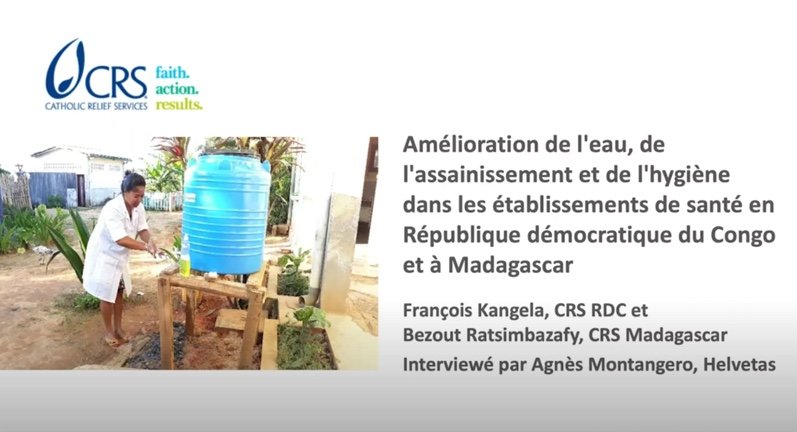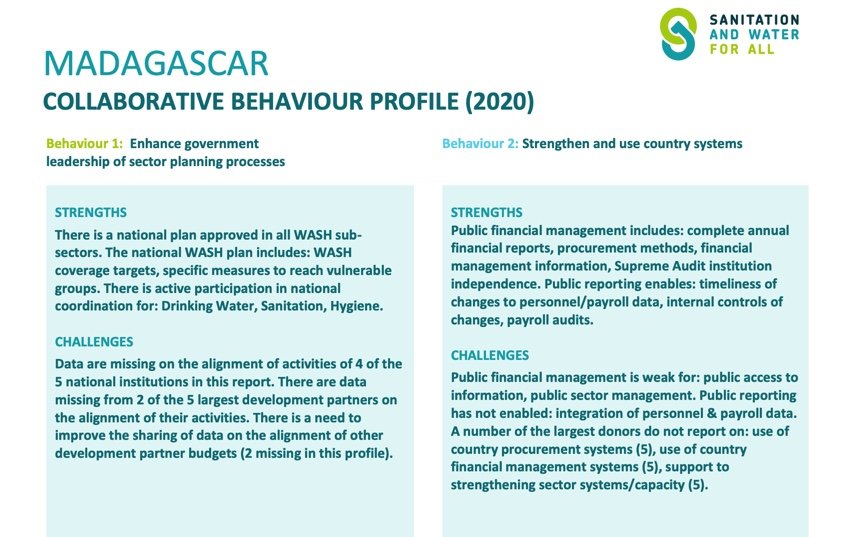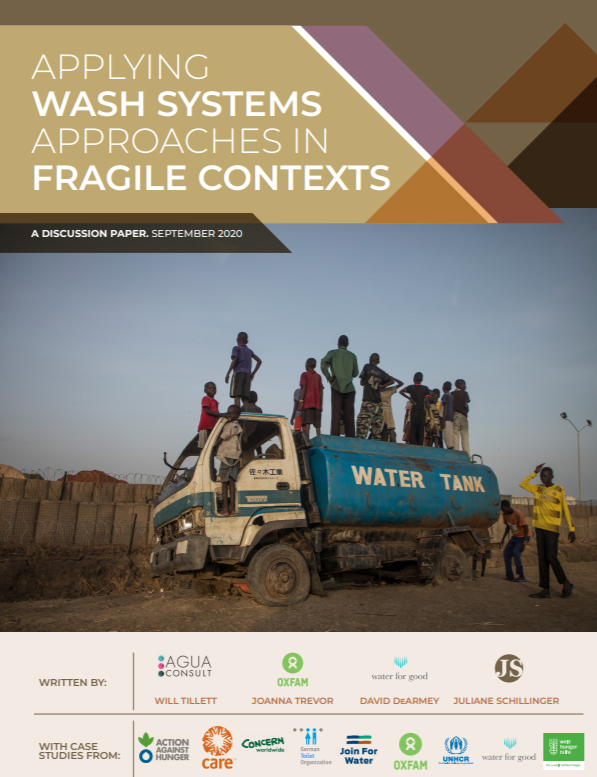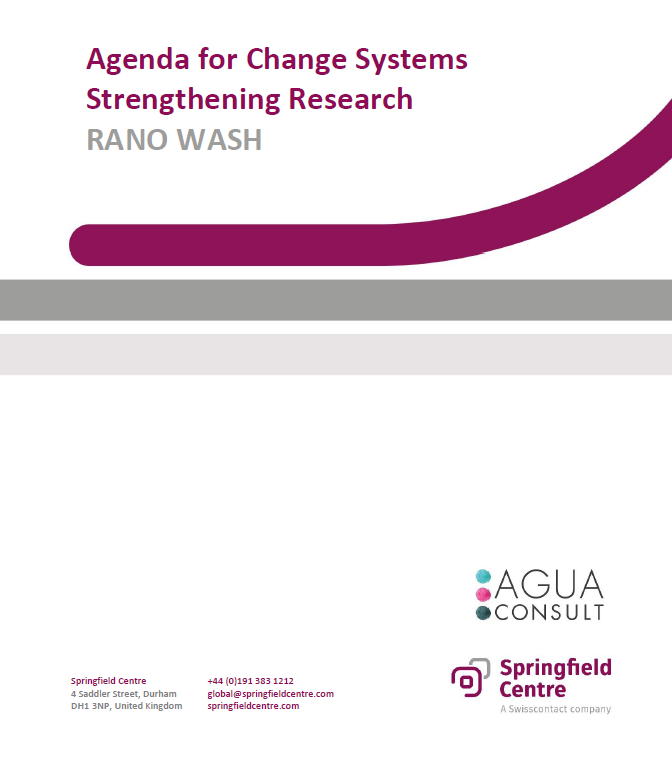Madagascar
Agenda for Change members working on systems approaches
Please note this is a summary of information. You can learn more on the CARE, CRS, Helvetas, and WaterAid websites.
Building off the successes of the Rural Access to New Opportunities for Health and Prosperity project (RANO-HP, 1999-2013), the USAID-funded Rural Access to New Opportunities for Water, Sanitation and Hygiene (RANO WASH) project in Madagascar is a uniquely collaborative project between the Ministry of Water, Sanitation and Hygiene, CARE, Catholic Relief Services (CRS), WaterAid, and two local private sector enterprises. WaterAid leads the governance and engagement component, focusing on their experience with advocacy. CRS leads private sector activities to cultivate a business-friendly environment. CARE directs behavior change and gender mainstreaming activities. Private sector enterprises BushProof and Sandandrano offer technical support and project management and advise on public-private partnership development.
Helvetas works with municipal authorities, and local organization SANTATRA, to improve WASH infrastructure and knowledge in schools and health centers around Miandrivazo.
Systems strengthening activities
RANO WASH: Designed with the Sanitation and Water for All Collaborative Behaviors in mind, the consortium partners are working to develop a joint-sector plan for water management at national and regional levels, as well as a periodic joint-sector review process. At the regional level, partners work with communal governments to inform and guide WASH services and negotiate a contract model for service provision by private sector enterprises. The program works within the national government’s existing platform by improving and strengthening indicators, data collection and updates, data analysis, self-efficacy and functions, and data management and system maintenance at the commune, regional, and national level.
CRS used the Clean Clinic Model for improving WASH in public and Catholic-run healthcare facilities in Madagascar, among other countries. The Clean Clinic Model is a roadmap, adapted to each country context, that a health facility can follow to maintain hygienic conditions. It is based on promoting ownership of WASH systems at the facility level and capacity building of local actors
Other partners
Entities of the Central Government
Ministry of Water, Sanitation, and Hygiene, Ministry of Public Health, Ministry of Interior, Ministry of Decentralization
Local Governments
Communal governments, Municipal authorities
All others
Private sector enterprises (BushProof and Sandandrano), Universities, Local Catholic Churches
Accomplishments
- CARE Madagascar’s RANO WASH Team won the 2020 Systems Change Award recognizing their systems strengthening efforts.
- In accordance with RANO WASH activities, 12 private operators provided affordable and reliable piped water services to 5,300 people by investing $152,000 of their own funds into their water supply system.
- Through RANO WASH, a total of 60,200 people have gained access to basic or improved sanitation.
- Launching of the National Action Plan for Nutrition Phase III in 2019, a multi-stakeholder and multi-sector approach to reducing malnutrition and increasing WASH access across the country.
Challenges
- Developing emergency resilient activities and financing schemes to continue making progress during COVID-19.
- Increasing human resources in both quality and quantity, and reducing staff turnover on various programs.
- Government engagement, responsibility, and capacity, from national ministries to communal and municipal authorities, and stronger public-private partnerships.
- Influencing adoption of behavior change practices, including within the collaboration between WASH and malnutrition programs.
How strong are the systems?
To determine how well systems are working, we rely on data derived from Building Blocks, which are manageable ‘sub-systems’ that can be supported and strengthened. Certain building blocks may be more strongly developed or applied at district or national level. Interactions between building blocks are essential.
National level
Building Block
Water
Sanitation
Hygiene

Institutional Arrangements & Coordination
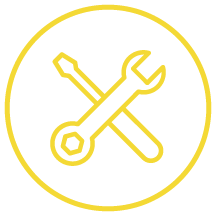
Service Delivery Infrastructure
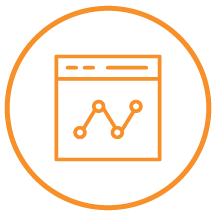
Monitoring

Planning

Finance
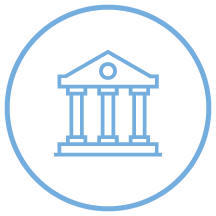
Regulation & Accountability
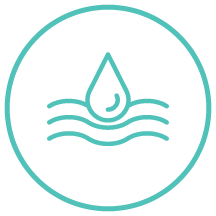
Water Resource Management

Learning & Adaptation
National
Local
National

Video
Promoting WASH systems approaches for sustainable, inclusive services during COVID-19 in Madagascar


